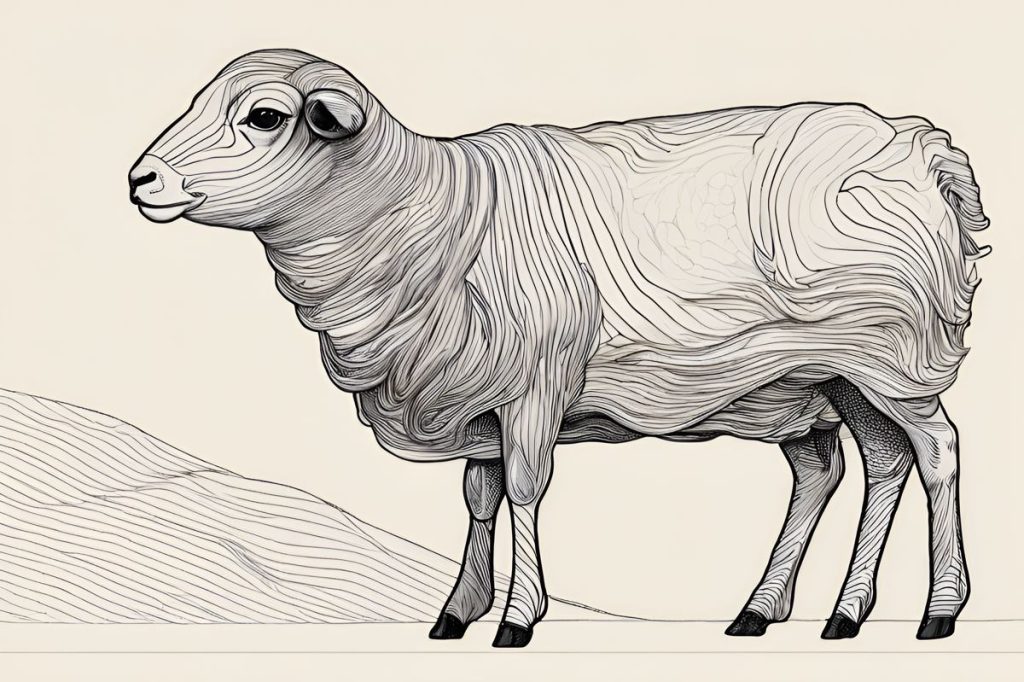During springtime in Cyprus, the public is advised to refrain from ‘rescuing’ moufflon lambs found alone in the wild. Most are not orphaned; their mothers are nearby. To prevent disrupting their natural behavior and endangering their survival, contact wildlife services if you notice signs of distress.
What should you do if you find a moufflon lamb alone in the wild?
If you encounter a moufflon lamb alone, observe it from a distance without disturbing it. Most are not orphaned; their mothers are nearby. If you notice signs of distress, such as persistent crying, parasites, inability to stand, or injuries, contact wildlife services for assistance. Avoid direct intervention to prevent disrupting their natural behavior and endangering their survival.
Springtime in Cyprus: A Delicate Balance
Spring brings a sense of renewal and hope, but it also ushers in a critical period for wildlife, especially the moufflon lambs of Cyprus. As these solitary creatures begin their journey in life, often without the immediate presence of their mothers, they face a world of natural beauty and inherent risks. The island’s lush Paphos forest and the Troodos mountains provide a sanctuary for the moufflon, a symbol of Cyprus’ rich natural heritage.
The Cyprus game and fauna service, however, has raised concerns about the unintended consequences of human interference. It’s a misconception that these newborns, found alone, are orphaned. In most cases, the mother is simply away foraging, returning periodically to nurse her offspring.
The Perils of Misguided Good Intentions
The urge to protect is strong in us all, yet, when it comes to wildlife, it can lead to harm. Recent instances have seen well-intentioned individuals ‘rescuing’ what they believed to be orphaned moufflon lambs. Unfortunately, these actions can sever the critical bond between mother and lamb, vital for the youngster’s survival in the wild.
The consequences are sobering; moufflon lambs taken by people often cannot be reunited with their mothers. This misstep leads to these animals spending their lives in captivity, such as the wildlife rehabilitation hospital in the capital, where they require laborious care, including feeding every three hours. Moreover, these lambs, if they survive, are likely to spend their lives in zoos or similar facilities, never returning to the wild.
Recognizing When to Intervene
The key to coexisting with our wild neighbors lies in understanding and respect. Most lone moufflon lambs are perfectly fine and their mothers are nearby, even if unseen. However, certain signs may indicate a lamb is genuinely in distress or orphaned, such as persistent vocalizations, excessive parasites, an inability to stand or evident injuries. In such cases, it is essential to contact wildlife services rather than attempting to help the animal directly.
For the Cyprus moufflon, which is an endangered subspecies endemic to the island, every individual is vital to the population’s longevity. Thus, preserving their natural behaviors and the delicate ecological balance is of the utmost importance to ensure their survival.
A Call for Awareness and Respect
The message from wildlife experts is clear: if you encounter a moufflon lamb alone in the wild, observe from a distance and do not disturb. Intervening without proper knowledge can invite predators, cause undue stress, and ultimately do more harm than good. By allowing these majestic animals to remain undisturbed, we support their well-being and contribute to the conservation of Cyprus’ unique wildlife heritage.
Should you suspect that a moufflon lamb is genuinely in need of aid, reach out to the authorities with detailed information. They are trained to handle such situations with the appropriate care and expertise, balancing human concern with the needs of the wild. Through collective respect and understanding, we can ensure that the moufflon continue to thrive in their natural environment, a treasure for future generations to cherish.
How should the public approach finding a moufflon lamb alone in the wild?
If you come across a moufflon lamb alone in the wild, it is important to observe it from a distance without intervening. Most of these lambs are not orphaned, and their mothers are likely nearby. If you notice signs of distress like crying, parasites, inability to stand, or injuries, contact wildlife services for assistance. It is crucial to avoid direct intervention to prevent disrupting their natural behavior and putting their survival at risk.
Why is it advised against rescuing moufflon lambs found alone in the wild?
Rescuing moufflon lambs found alone in the wild is discouraged because most of these animals are not truly orphaned; their mothers are often nearby. Human intervention can disrupt the critical bond between mother and lamb, essential for the youngster’s survival in the wild. Furthermore, rescued lambs that cannot be reunited with their mothers may end up spending their lives in captivity, never returning to the wild.
What are signs that a moufflon lamb may be genuinely in distress or orphaned?
Signs that a moufflon lamb may be genuinely in distress or orphaned include persistent vocalizations, excessive parasites, an inability to stand, or evident injuries. If you observe any of these signs, it is essential to contact wildlife services for assistance. Attempting to help the animal directly without proper knowledge and training can do more harm than good.
How can the public contribute to the conservation of Cyprus’ moufflon population?
To contribute to the conservation of Cyprus’ moufflon population, it is crucial for the public to respect and understand these animals’ natural behaviors. If you encounter a moufflon lamb alone in the wild, observe from a distance and refrain from intervening unless signs of distress are present. If you suspect a moufflon lamb needs assistance, contact wildlife services with detailed information. By allowing these animals to remain undisturbed and supporting their well-being, we can help preserve Cyprus’ unique wildlife heritage for future generations.

